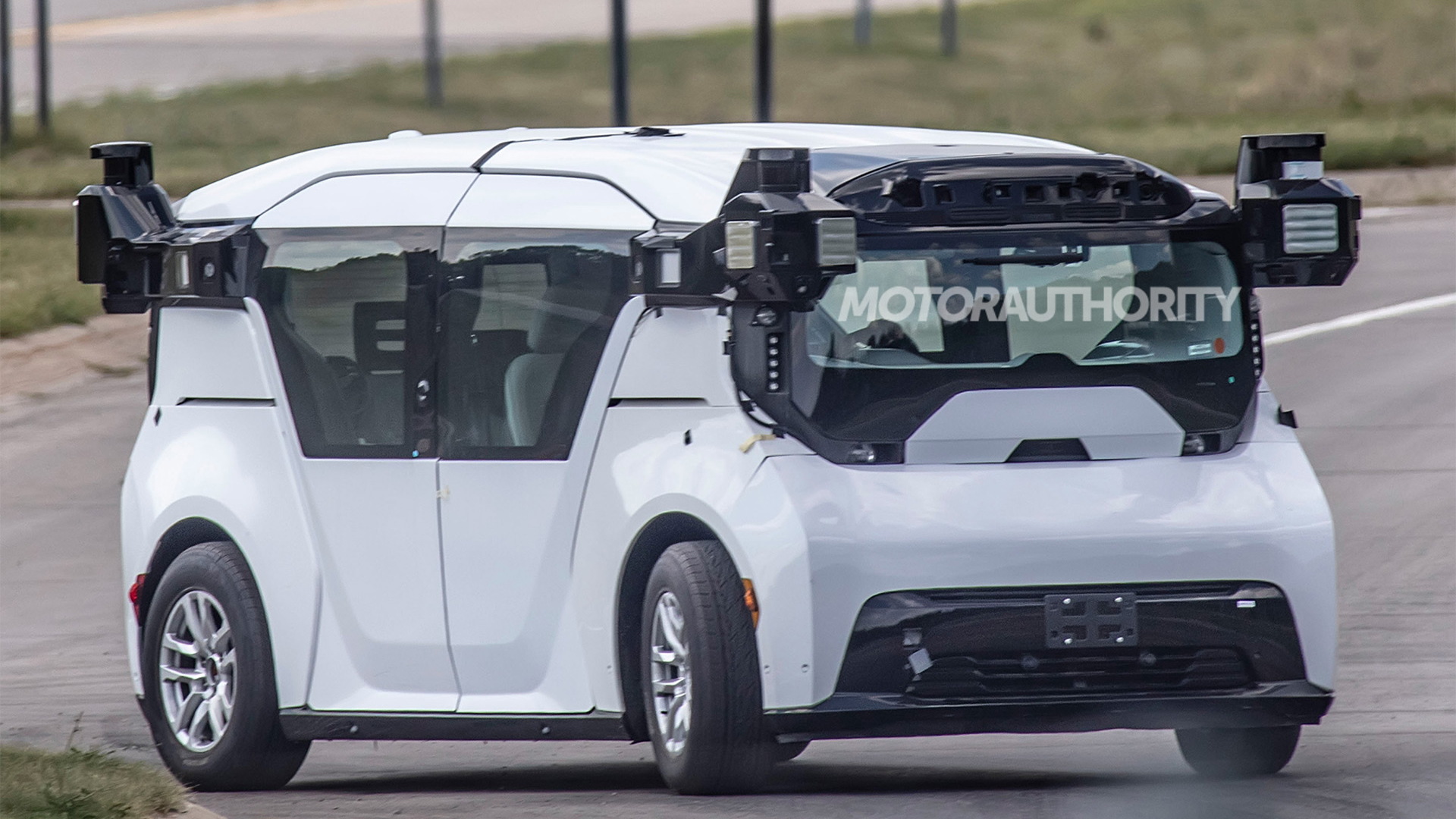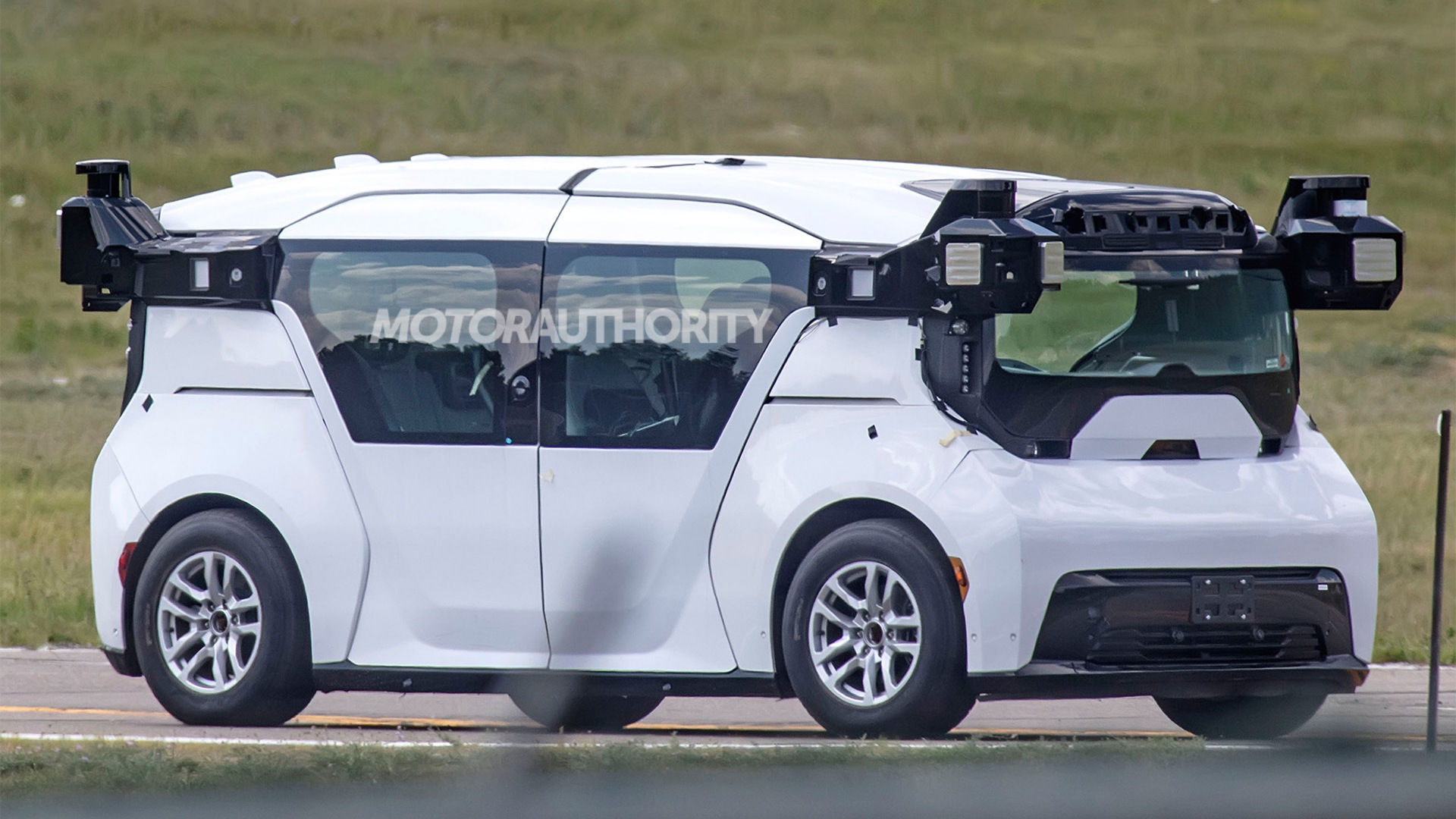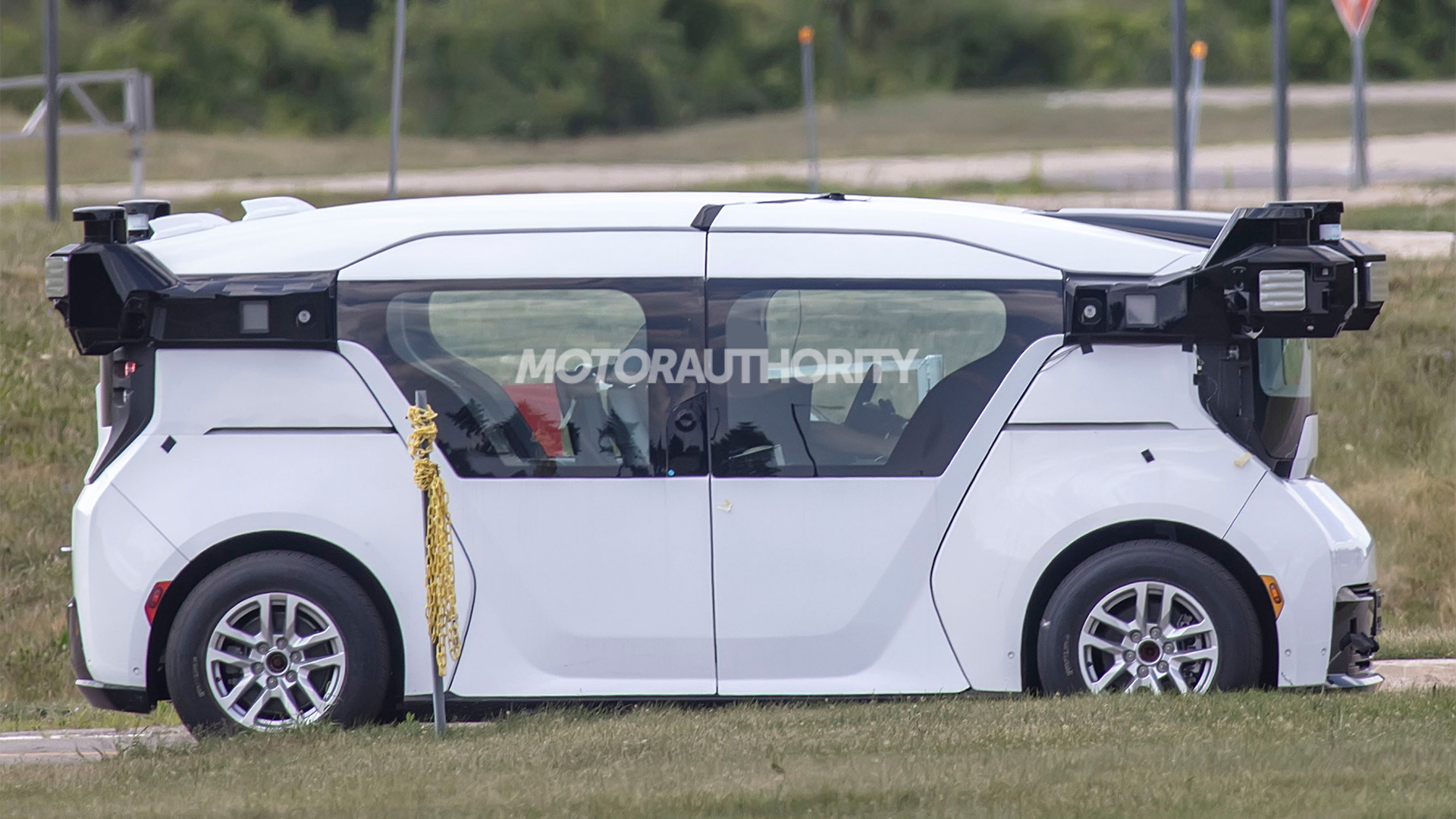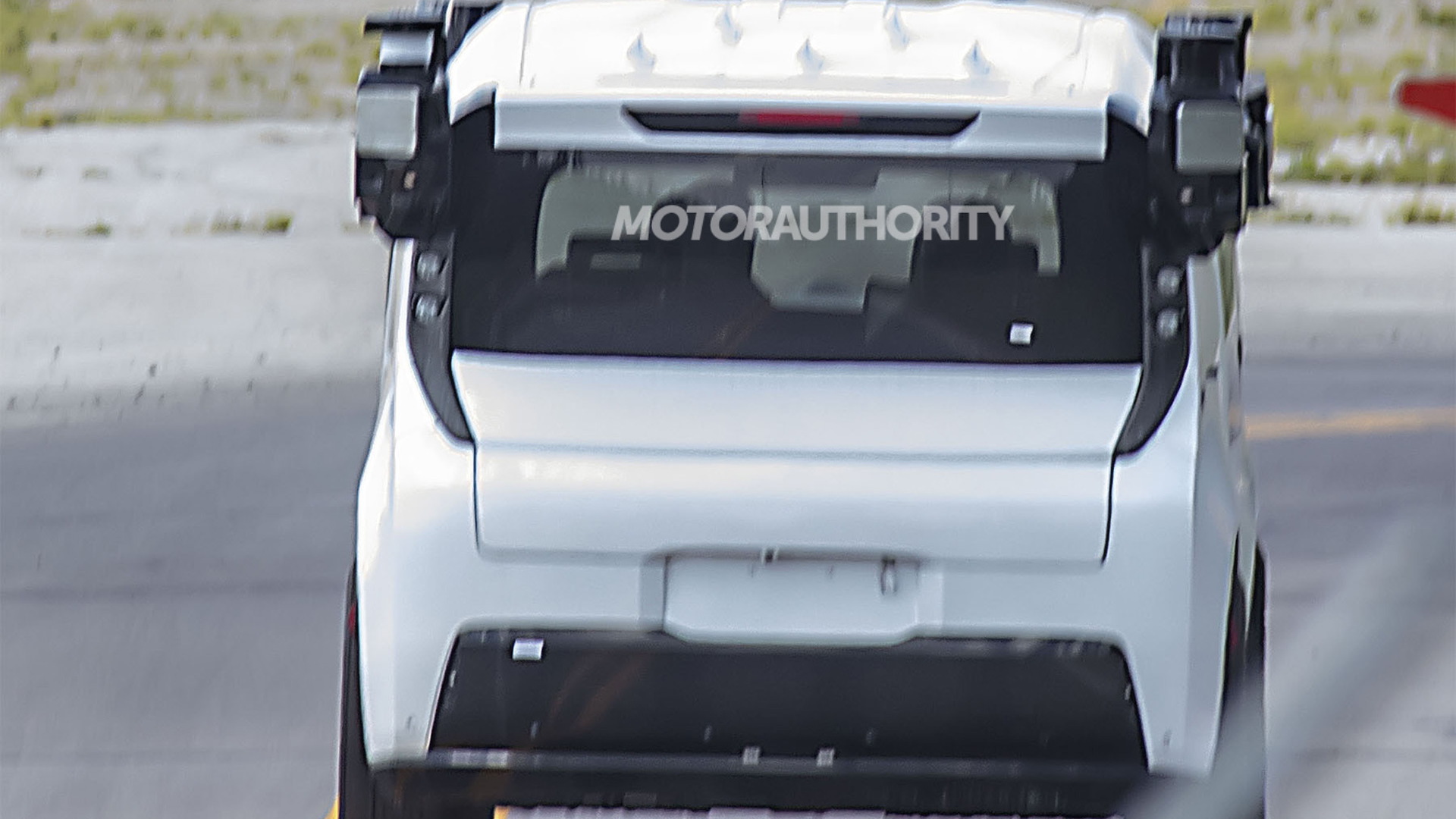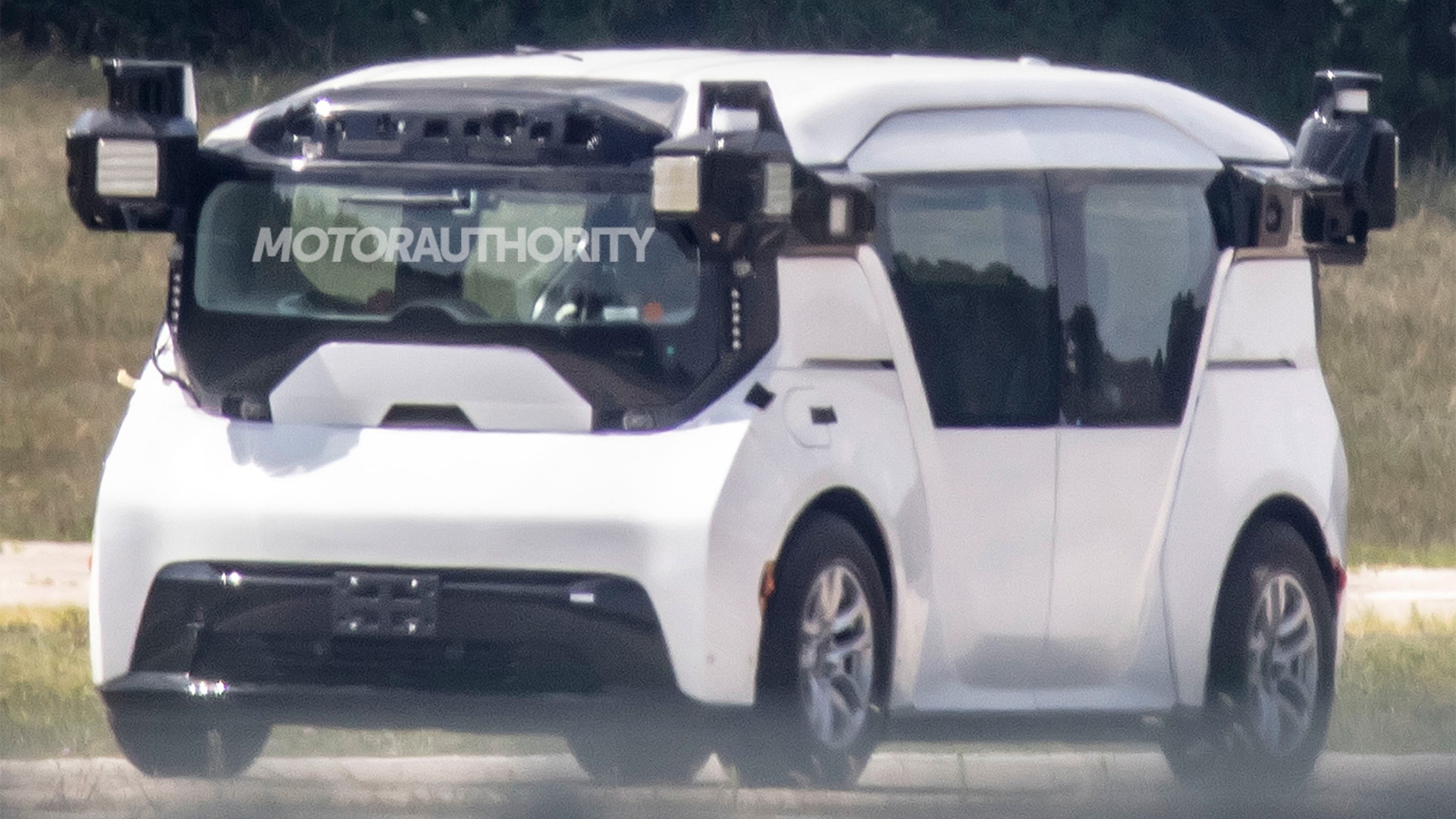It was first shown as a concept in early 2020 and now Cruise's Origin self-driving shuttle has finally been spotted testing.
The prototype Origin in our spy shots looks almost identical to the concept, though the various sensors lining the leading edge of vehicle's roof are exposed here instead of being hidden behind a panel. The sensor units mounted at each corner, which includes a lidar sensor, also appears to be bigger than what was previewed on the concept.
The testing took place within the confines of General Motors' test center near Milford, Michigan, and it appears a human was still doing driving. However, Cruise has been using modified Chevrolet Bolt EVs for developing its self-driving system, and already has a fleet of them driving around San Francisco in trial operation without any human drivers.
The Origin will be the main vehicle used by Cruise once its self-driving taxi service is fully up and running, currently expected to be in 2023. The Origin has been designed to take advantage of economies of scale, with easy hardware upgradeability and a service life intended for more than a million miles.
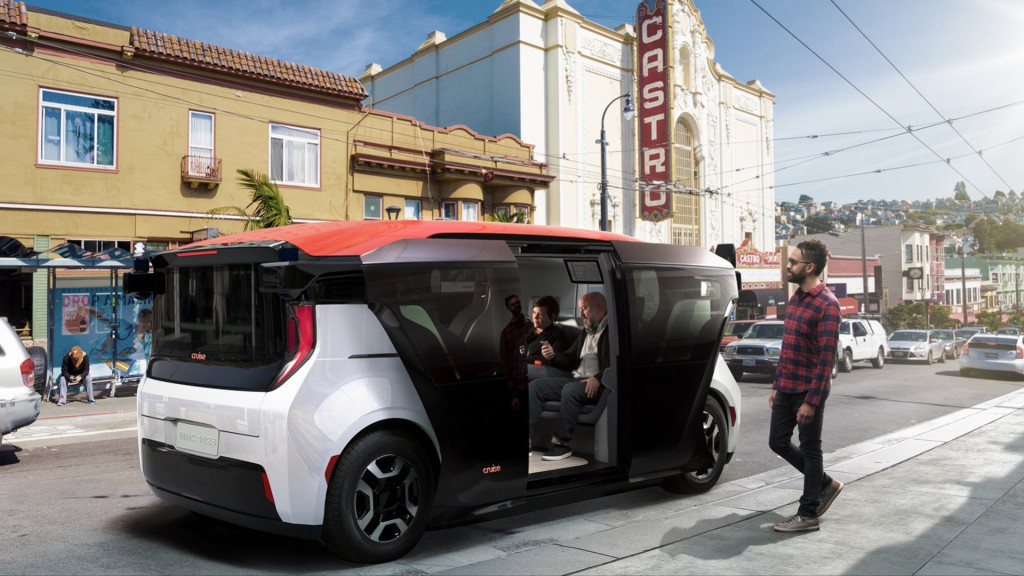
Cruise Origin driverless vehicle
GM is the biggest shareholder in Cruise and will be responsible for production of the Origin. The fully electric shuttle, which is based on GM's Ultium EV platform, is scheduled to enter production in early 2023 at GM's Factory Zero plant in Detroit. The plant is where GM is currently building the GMC Hummer EV.
While San Francisco will be the first location where Origins will be deployed, Cruise also announced in early 2021 it plans to deploy the vehicles in Japan eventually. Cruise will work with Honda, which is another major shareholder, for the operations in Japan.
Cruise's self-driving system ranks at Level 4 on the SAE scale of self-driving capability, as it is limited in areas in which it operate. The final goal is Level 5, where a self-driving car is able to operate at the same level as a human. While Level 5 might be a decade or more away, companies are already offering commercial services involving Level 4 cars. Alphabet's Waymo One service has been up and running in parts of Phoenix for the past three years, and China's Baidu launched its Apollo Go service in Beijing last year.
The sighting of the prototype comes just weeks after The Wall Street Journal reported that a California regulator responsible for issuing permits for self-driving cars said it was looking into potential safety concerns of Cruise detailed in an anonymous letter claimed to be from someone who worked at the company.
